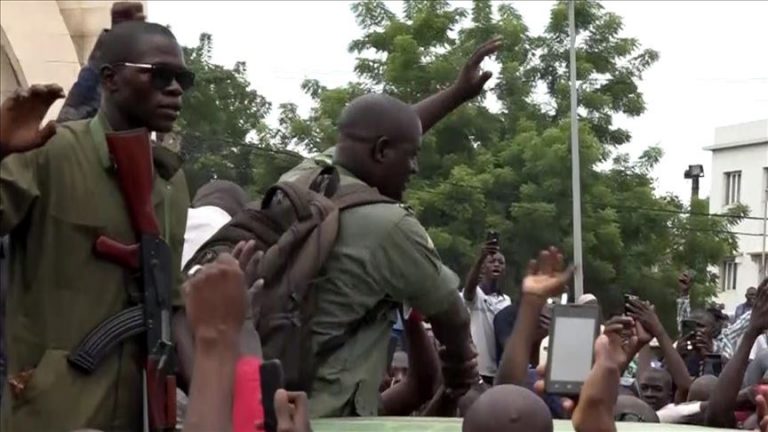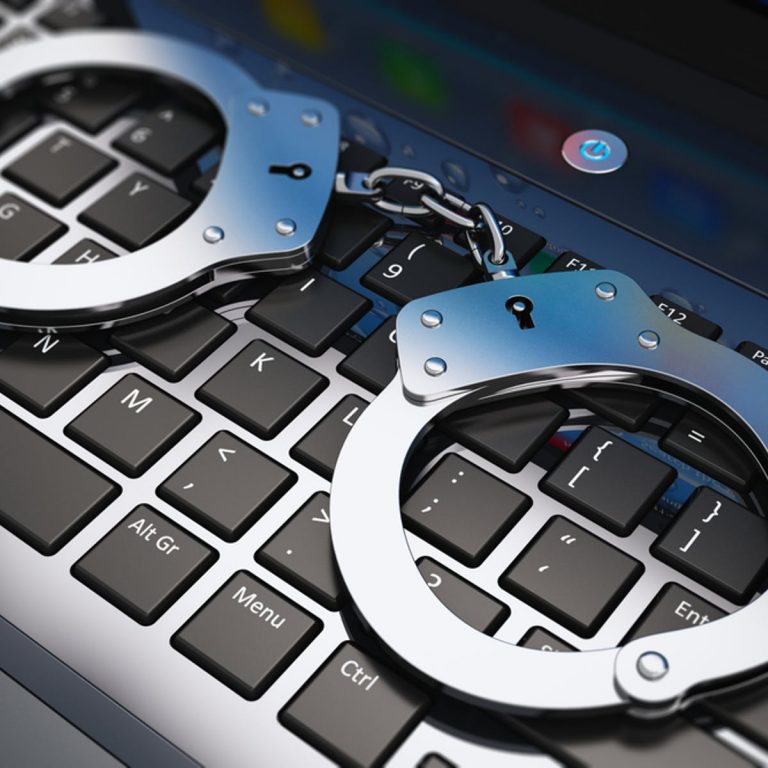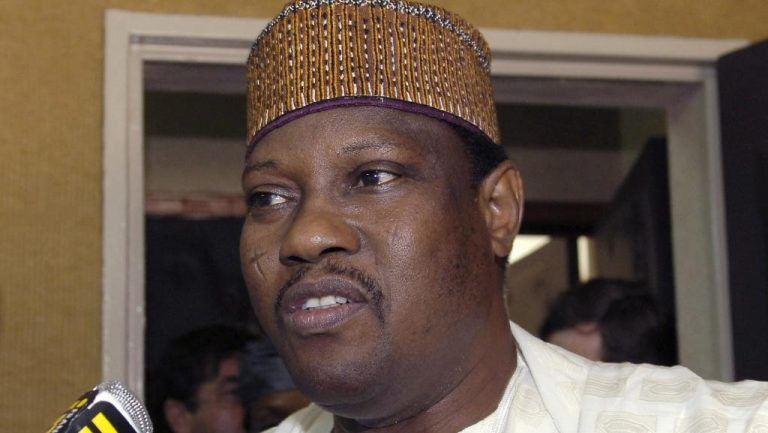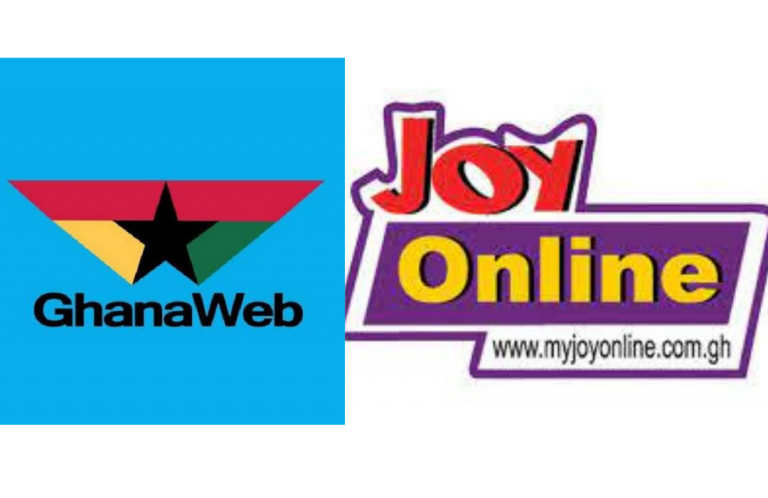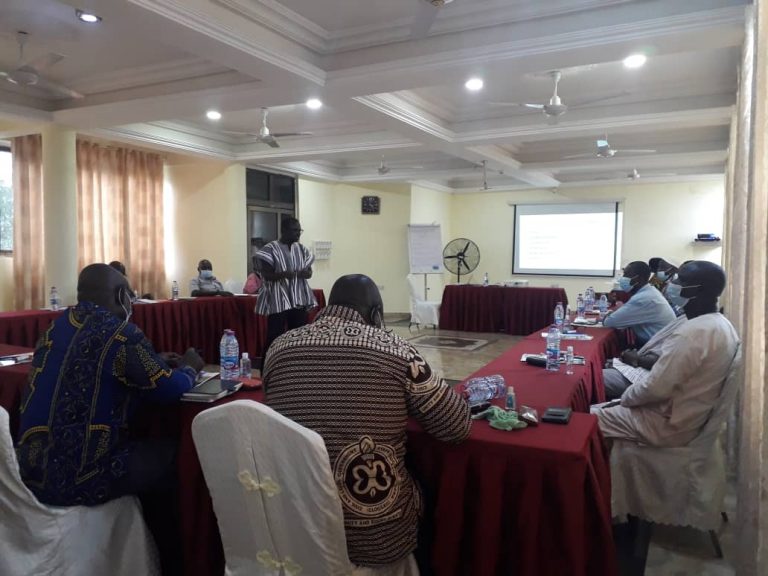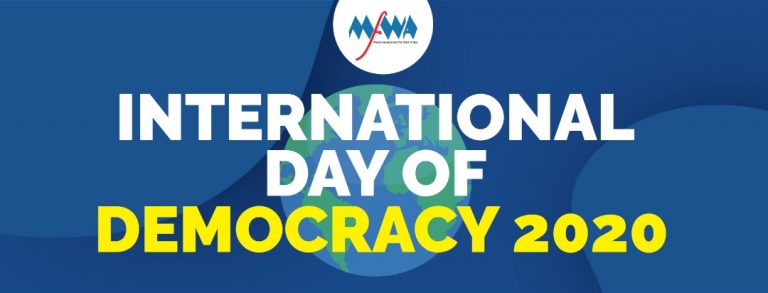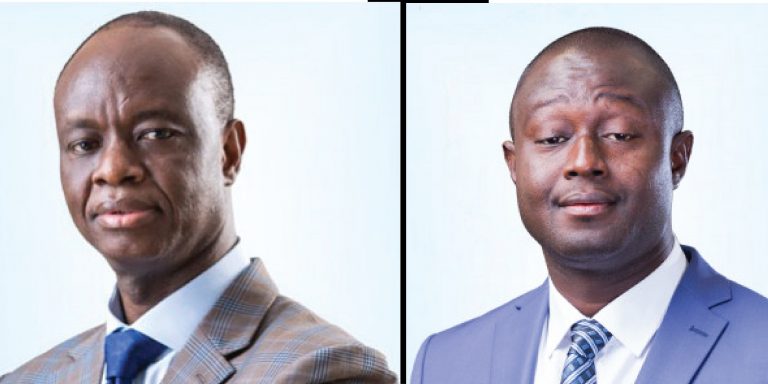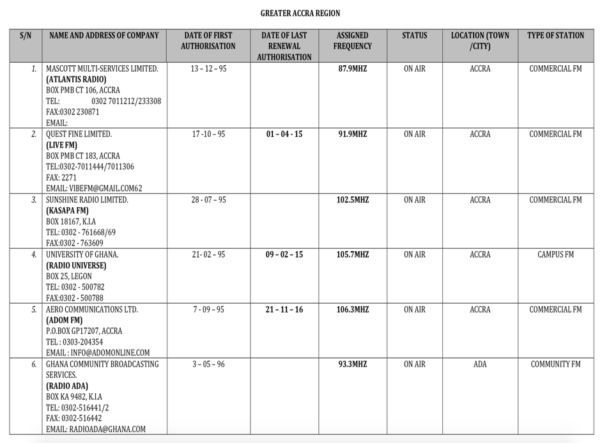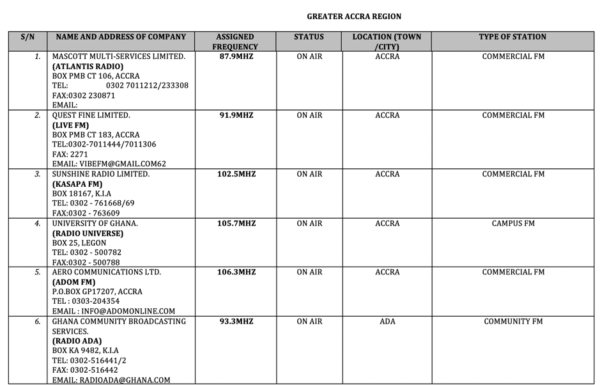Nigeria, after gaining independence from British colonialists on October 1, 1960 became a victim of military coups, starting from 1966. Between 1966 and 1993, The West African nation was ruled by a series of military juntas. The country was about to experience the beginning of its democratic rule in 1993 when General Ibrahim Babangida, who ruled since 1985, under pressure handed over to Chief Ernest Shonekan as interim president.
But Shonekan’s administration only lasted three months when a coup led by General Sani Abacha resulted in his (Shonekan) government’s overthrow. Abacha died in 1998, and his successor, General Abdulsalami Abubakar (rtd) promised a transition to democracy. Accordingly, a new constitution was adopted on May 5, 1999. Elections held later in the year saw former military leader Olusegun Obasanjo elected president of Nigeria.
With the return to democracy, Nigeria was expected to promote press freedom, as enshrined in section 39 (1) of its 1999 constitution and ensure a total departure from the assault on press freedom which characterised the military rule.
However, with violations, including physical assaults on journalists and media houses, the jailing of reporters, as well as the introduction of laws such as social media bill to hamper free expression, Nigeria has yet to demonstrate its willingness to promote the freedom of the press under the democratic rule.
Arrests of Journalists
Agba Jalingo, the publisher of CrossRiverWatch, an online newspaper, was arrested by the police on the orders of the Cross River State government in his Lagos residence on August 22, 2019, for exposing an alleged diversion of $1.4 million (N500 million) by the Cross River State government.
Darlington Edem, the Chairman of the Association of Cross River Online Journalists, stated that Jalingo’s arrest proved that “the media in Cross River State is caged and controlled” and called for the latter’s release. But Jalingo did not regain his freedom until after spending 170 days.
Also, journalist Omoyele Sowore was arrested by the secret police, also known as the Department of State Services, on August 3, 2019 after he published a call for a nationwide protest against bad governance. He was later charged with conspiracy to commit treason and insulting Nigeria’s President Muhammadu Buhari. Sowore would spend over four months in detention before being released on December 24, 2019.
A similar fate befell journalist Jones Abiri, who was locked up for up to two years on terrorism charges before his eventual release.
Unresolved Killings
Nigeria is fast gaining notoriety for its failure to tackle impunity for crimes against journalists including killings. For example, four journalists were killed in separate incidents with no credible inquiry yet to find the culprits and their motive for the fatal attacks. The four were Ikechukwu Onubogu, a cameraman with the Anambra Broadcasting Services, Lawrence Okojie of the Nigeria Television Authority (NTA) in Edo State, Famous Giobaro, a desk editor with Glory FM in Bayelsa State and freelance broadcaster, Abdul Ganiyu Lawal in Ekiti State.
Three more journalists have since been killed under circumstances that have yet to be clarified through any credible investigations. Maxwell Nashan, a journalist with the Federal Radio Corporation of Nigeria (FRCN), Adamawa State was, on January 15, 2019, found tied and muzzled in a bush with his body hacked at several places. Nashan, who had been abducted from his house the previous day, died on arrival at the hospital.
In the second incident, security forces who were battling Shiite Muslim protesters in Abuja on January 28, shot and killed Alex Ogbu, a journalist with the Regent Africa Times newspaper.
Precious Owolabi of Channels Television was also shot dead by security forces while covering a demonstration on July 22, 2019.
View of the Experts
The introduction of legislation such as the Terrorism Prevention Amendment Act of 2013, Cybercrime (Prohibition and Prevention) Act of 2015, and Social Media Bill of 2019 (which was later renamed Hate Speech Bill) have also raised concerns that they will be used to restrict freedom of expression.
Dr Farooq Kperogi, a Nigerian associate professor of journalism and emerging media at the School of Communication & Media, Kennesaw State University, Georgia, United States, told the MFWA in an email interview that, attacks on media have particularly intensified in the last five years under President Buhari.
“The news media have particularly come under extreme threats in the last five years. For instance, the Coalition for Whistleblowers Protection and Press Freedom found that in 2019, Nigeria recorded the severest assaults on journalists in 34 years,” Dr. kperogi said. “That means Muhammadu Buhari’s repressive military regime of the mid-1980s was even kinder to the news media than his civilian regime of the past five years has been,” the academic added.
Kperogi – who is the author of ‘Nigeria’s Digital Diaspora: Citizen Media, Democracy, and Participation’ and ‘Glocal English: The Changing Face and Forms of Nigerian English in a Global World’ – says his conclusion is that the media in Nigeria has been caged.
“Conscientious reporters are often attacked, harassed, or jailed; social media critics are ‘disappeared’ or fired from their jobs; and critical, anti-regime broadcast stations are shut down arbitrarily by regulatory bodies, and so on.
But the irony of the history of press freedom in Nigeria is that the news media tend to play the watchdog role ascribed to them during military regimes better than they do during civilian governments. With a few notable exceptions, since 1999, the news media have been either uncharacteristically quiescent or outright complicit in the face of enormous governmental malfeasance.
Another expert, Musa Rafsanjani, the Head of Transparency International in Nigeria and Executive Director of the Civil Society Legislative Advocacy Centre, told the MFWA in a telephone interview that despite being in a democracy, press freedom in Nigeria is threatened due to continuous attacks on journalists and media houses.
“The media operates under very difficult conditions – speaking of threats and attacks by the state apparatus on it (media), especially anytime corruption is reported. So many journalists have been physically attacked and their instruments confiscated for exposing injustice and corruption. Press freedom in Nigeria is suffering from state attacks,” Rafsanjani said.
Additionally, Rafsanjani notes that many journalists are unable to do their job conscientiously because the hostile environment in which they operate.
“Government can’t block leakages in the system and ensure good governance if it doesn’t allow journalists to do their job without fear,” he says, adding, “Journalists must be treated with dignity and respect when carrying out their job. They should not be seen as enemies but as strategic partners in promoting good governance in society.”
For Mr Ayo Sogunro, who is an author, lawyer and scholar at Centre for Human Rights, press freedom in Nigeria has, since the return to civilian rule in 1999, been in a suspended state – somewhere between the ideals of the 1999 constitution and the daily reality of autocratic civilian governments and negative public attitudes to social criticism.
“Certainly, if we contrast the current legal situation against the decades preceding 1999 (when military decrees legally curtailed the freedom of expression and soldiers would often storm media houses, destroying property and arresting staff) then the current legal regime is fairly liberal. Section 39 of the 1999 constitution provides for the freedom of expression, including the freedom to own and operate media to disseminate ideas. This is the ideal.
“In reality, however, Nigerian governments have continued to maintain military-style surveillance of, and antagonism towards critical opinion, particularly in major media platforms. The federal government and state governments have used criminal defamation laws to whittle down the freedom of expression,” Sogunro said.
Matthew Page, an Associate Fellow at Chatham House, London, and co-author of ‘Nigeria: What Everyone Needs to Know,’ however, has a more positive view of the current state of press freedom in Nigeria, compared to the military era.
“The proliferation of vibrant – if not rambunctious – social media feeds, fast-paced WhatsApp groups and countless internet news sites are proof of that (freer press). Nigeria has many world-class journalists doing outstanding work in very difficult conditions,” Page stated. The biggest threats to professional journalism and safety of journalists, according to him, is the phenomenon of using “brown envelop” or coercion to stifle critical journalists.
“Nevertheless, this freedom of expression remains under threat. Brown envelope journalism is rife. Journalists are too often arrested, intimidated, or harmed if their stories embarrass powerful politicians or security agencies.”
To make matters worse, Page bemoans that some former champions of free speech have sold out, spending their days churning out spin and attacking independent voices on behalf of powerful officials.
“This makes assessing press freedom in Nigeria akin to solving a complex equation made up of many constantly changing variables,” he added.
In the light of the above, the MFWA calls on the authorities to do more to promote press freedom and ensure that journalists can safely practise their profession without fear of repercussions.
In particular, the government must take steps to end the arbitrary arrest and detention of journalists by security forces, especially the Department of State Services (DSS).
The authorities should also amend sections of the Cyber Crime Law which are often broadly interpreted to criminalise critical online publications as in the cases of Jalingo, Sowore and Abiri.

